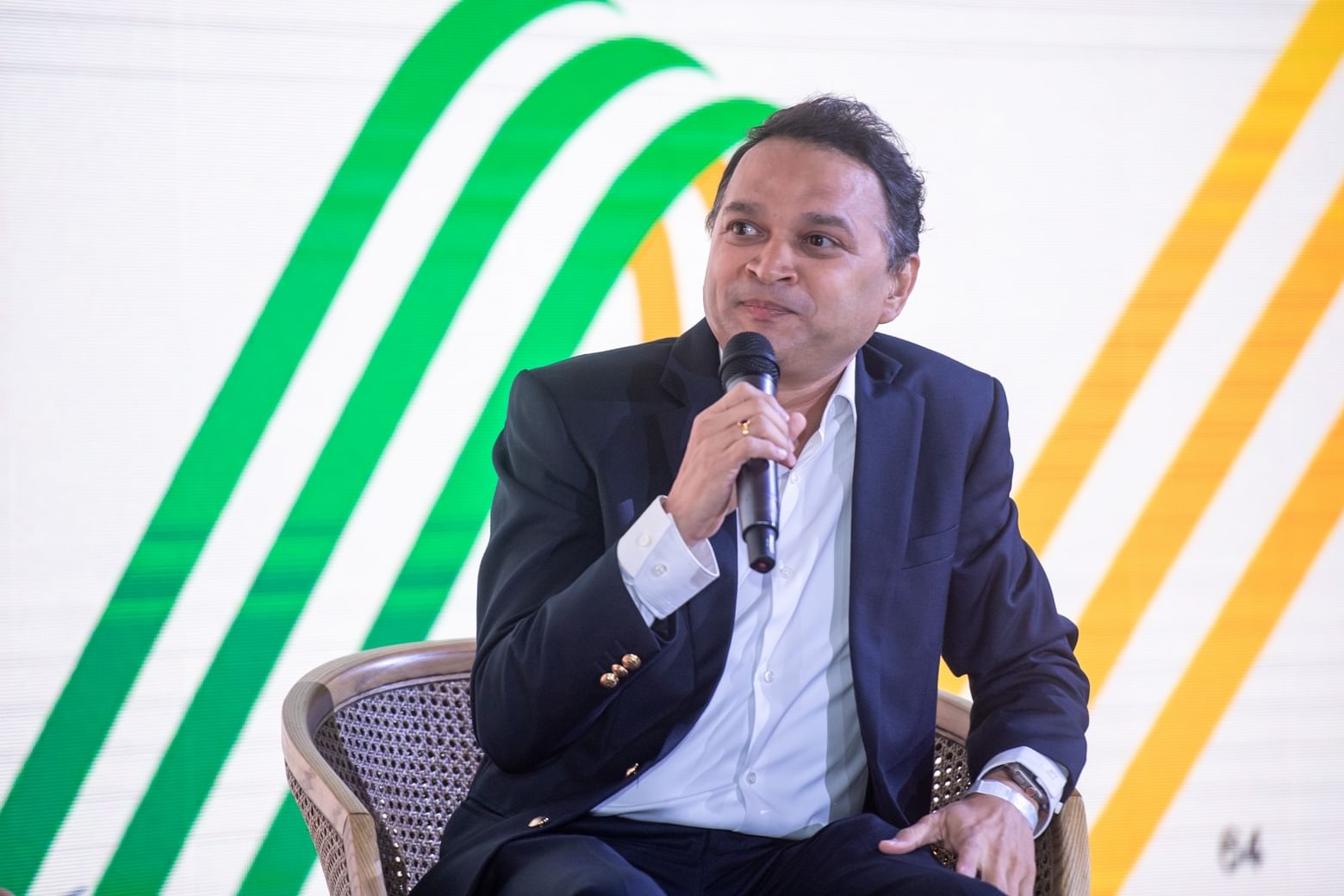BRANDED CONTENT
Keeping retirement planning on track can be a struggle, say Singapore residents in survey
Cash and bank accounts are still a preferred way of saving for retirement among respondents in Singapore. Is that wise?

Recent survey finds that 63 per cent of Singapore residents view saving for retirement as their top personal finance goal.
PHOTO: GETTY IMAGES
While Singapore residents understand the importance of saving for retirement, many are bogged down by immediate financial obligations. For young couples who are looking to start a family, the pressure can be amplified as various expenses pile up.
Ms Ho Yun Yi, 30, who got married earlier this year, is one of them. She shares that her Build-To-Order flat will be ready next year.
“This means that we will have to start paying the mortgage by then. At the same time, we plan to have kids within the next couple of years and anticipate a spike in our daily expenses,” she says.
Ms Ho works as a project manager in a technology company, while her husband is a user experience (UX) designer in a financial technology firm. They worry about job security in the current economic climate. “There are widespread layoffs in the industry; so if either of us lose our jobs, we would have trouble affording all these,” she adds.
This makes financial stability and sufficiency a big concern for the couple, who have a low five-figure combined monthly income. “It is the key reason why we cannot afford to do the things that we want, such as furthering our studies, or setting aside money to plan ahead for retirement.”
Their situation reflects that of many Singapore residents who juggle multiple financial priorities, according to the latest Manulife Asia Care Survey 2023 published in March.
While nearly two-thirds (63 per cent) of Singapore respondents view saving for retirement as their top personal finance goal, only 35 per cent say they have a retirement plan in place.
Conducted between late December 2022 and early January 2023, the study polled 1,037 Singapore residents. It covered 7,224 respondents aged 25 to 60 in seven markets across Asia.
Other financial priorities that Singapore respondents have include saving for a rainy day (44 per cent), maintaining their current lifestyle (34 per cent), and saving for medical needs (26 per cent).
By the numbers
- 63%
Singapore respondents who view saving for retirement as their No. 1 personal finance goal
- 68%
Singapore residents who are concerned about the impact of inflation on their savings goals
- Nearly 2/3
63 per cent of respondents in Singapore say cash and bank accounts are the main way they save for retirement
- 53%
About half of Singapore respondents say they believe healthcare costs pose a risk to their financial goals
Cash still king for retirement planning
Retirement planning may not be an immediate priority for Ms Ho, but she does intend to start soon because of her concerns over high inflation.
Explaining that she would employ a mix of both cash and investments to save up for retirement, Ms Ho says: “While I understand the importance of growing my savings through investments which offer better returns, I would want to hold on to some cash as well, due to its liquidity.”
The Manulife survey found that among Singapore respondents, 68 per cent are concerned about the impact of inflation on their savings goals.
Cash and bank accounts also remain the main way among respondents in saving for retirement, at 63 per cent – above the regional average of 53 per cent.
“Asia typically has a more conservative investment culture, and many would prefer low-risk options such as fixed deposit accounts even if they get much lower returns,” observes Mr Mandar Padhye, senior director of sales, financial services, Forte Group. Forte Group is a branch representing Manulife Financial Advisers.
Mr Mandar, 48, who has been in the industry for eight years, adds that the perceived “safety” of cash savings, as well as the stability of Singapore banking and financial institutions are also contributing factors for Singapore residents to rely on cash and bank accounts.

Mr Mark Czajkowski, chief marketing officer, Manulife Singapore, says: “Even though it is extremely low-risk, an over-reliance on cash for retirement is not ideal as you will find inflation eating away at the value of your cash savings.”
Therein lies the importance of finding options that could potentially perform better than the inflation rate, adds Mr Czajkowski.
Singapore’s core inflation – which excludes private transport and accommodation costs – was at 5 per cent year-on-year in March. The Monetary Authority of Singapore expects core inflation to stay elevated in the next few months, before easing more discernibly in the second half of 2023.
Don’t let health determine your wealth
The Manulife survey shows that health management could be a fearful process for many Singapore residents, with finance being the common cause of anxiety.
Nearly half (49 per cent) Singapore respondents worry about the high cost of treatment if they were to be diagnosed with a serious illness. As a result, many are using insurance plans to alleviate these worries.
About 74 per cent of Singapore respondents say they own at least three types of insurance – higher than anywhere else in the region, with the regional average being 70 per cent. More than half (54 per cent) also say they intend to buy personal insurance in the next 12 months.
Ms Ho shares that she is confident that her insurance portfolio provides adequate coverage. “My family has a history of medical conditions, so we are more conscious than most regarding the need to be well-covered,” she says, adding that she conducts regular reviews of her portfolio.
“Two years ago, when I was planning to get married, I did a thorough review to see if there were any gaps in my coverage.”
“It is the responsible thing to do since I am going to start a family. After all, you never know when something unexpected may crop up. (Insurance coverage) also gives me peace of mind knowing that I can afford the required treatment as well as retain a source of income (if I fall sick),” she explains.
Rising healthcare costs have contributed to an increasing awareness of financial planning among his clients, observes Mr Mandar. This has been further accelerated by the pandemic, which made people realise the importance of being prepared for unforeseen events.
He advises: “Financial planning should always start with income protection, through a range of insurance plans including life, critical illness, and personal accidents.
“You want to ensure that medical expenses won’t hit your savings. This will also protect your loved ones should anything happen to you.”
3 ways to improve financial well-being
Mr Mandar Padhye, senior director of sales, financial services, Forte Group, shares three tips on how you can work towards your financial goals. Forte Group is a branch representing Manulife Financial Advisers.
1. Budgeting is key. Setting the right budget will help you better manage your wants and needs, and help you prioritise your spending correctly.
2. Save and invest at least 20 per cent to 25 per cent of your income. As your income grows, ensure that your investment and savings expand proportionately too.
3. Regularly review your financial situation. Your needs and priorities in life can change. Make it a point to review your financial plan regularly to ensure that it addresses your needs, and that you are prepared for unforeseen events.
This is the first of a nine-part series titled “Your wealth and well-being”, in partnership with Manulife Singapore.


